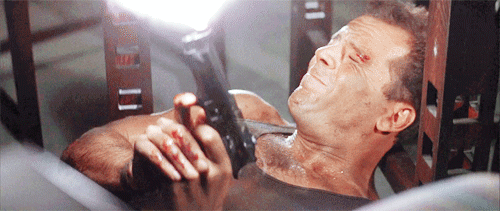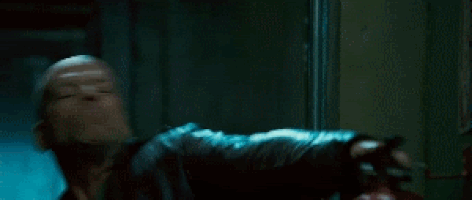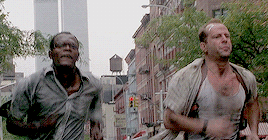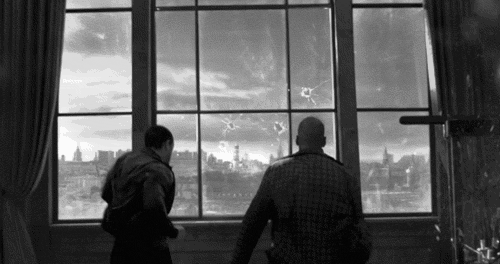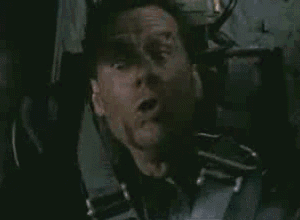
PEGGY CARTER’S POST-WORLD WAR II CAREER
Recently, I did a re-watch of Season One of "AGENT CARTER". While watching Scientific Strategic Reserve (SSR) Agent Peggy Carter endure the patronizing slights from her boss and fellow agents, I found myself wondering how she ended up as a mere agent, reduced to acting as the office’s secretary/coffee girl after two years as a code breaker at Bletchley Park and four years in the SSR during World War II.
I am certain that many of you would answer . . . duh, sexism! Like many women after World War II, Peggy had found her wartime activities dismissed by men, who were more concerned with regulating her and other women to traditional roles. This became doubly so for the likes of her post-war supervisors - Captain John Flynn and Chief Roger Dooley; and the latter's Lead Investigator/Agent, Jack Thompson. It was easier for them to treat Peggy as someone who should have held a secretarial or clerical position at the SSR, instead of an agent.
This was the conclusion I had come to after viewing both the 2013 short film, "MARVEL ONE-SHOT: AGENT CARTER"and Season One of the 2015-2016 series for the first time. It took a recent viewing of Season One for me to harbor some doubts about this story arc for Peggy. Between the creation of the SSR in 1940 and its absorption into the Strategic Homeland Intervention, Enforcement and Logistics Division (S.H.I.E.L.D.) as one of the latter’s subdivision near the end of the 1940s; Colonel Chester Phillips served as Director. If Colonel Phillips had served as Director of the SSR during the 2013 short film, along with Seasons One and Two of "AGENT CARTER", how did Peggy end up being reduced as some lowly field agent whom most of her colleagues dismissed, due to her gender? How did she get into this situation?
While working as a MI-5 agent in 1940, Peggy was loaned out to the SSR. Later that year, she managed to infiltrate HYDRA’s German headquarters at Castle Kaufmann and rescue Dr. Abraham Erskine, creator of the Super Soldier Serum. She also engaged in missions in Brooklyn, New York and the Soviet Union. In June 1943, she was assigned by Phillips to train the potential candidates - one of them, a physically undeveloped Steve Rogers - for Erskine’s serum. By the end of the war, she had more or less become Phillips’ top aide. And following the death (or disappearance) of Steve Rogers, who had been transformed into Captain America by Erskine's serum, she took command of the Howling Commandos and led the operation to mop up the last remnants of HYDRA in Europe. They managed to capture one of the last HYDRA commanders, General Werner Reinhardt, and an artifact in his possession called the obelisk. Within a year of this operation, Peggy found herself first assigned to the SSR's Brooklyn, New York office under Captain John Flynn; and later assigned to the SSR's Manhattan office, which was supervised by Roger Dooley.
So, how did Peggy get into this situation? How did she become the butt of contempt, bigotry and many jokes by her fellow agents? Dismissed as a woman who had no business in what they regarded as a "man's world"? Both Flynn and Dooley must have seen her personnel file and learned about her exemplary wartime activities. Yet, both continued to dismiss her . . . until she managed to discover a deadly liquid called "the Zodiac", while working at the SSR's Brooklyn office. Later, she managed to decrypt an encoded message for the Manhattan office, which was received from a Soviet intelligence group called the Leviathan through its agent, Sascha Demidov's typewriter. Roger Dooley's regard for Peggy increased following Thompson's glowing report of her actions during a mission in the Soviet Union. By the end of Season One's penultimate episode, Dooley, Thompson and the rest of the agents had learned to accept Peggy for the competent intelligence agent that she was.
After a good deal of thinking, it finally occurred to me what problems I had with this scenario regarding Season One of "AGENT CARTER". One of them happened to be Colonel Chester Phillips, Director of the SSR. The other problems proved to be the series' creators, Christopher Markus and Stephen McFeely; and Eric Pearson, who wrote the 2013 one-shot film. According to the Marvel Cinematic Universe (MCU) Wiki website, Colonel Phillips was the sole director of the SSR throughout the 1940s. If so, why did he assign Peggy to serve under a pair of sexists like John Flynn and Roger Dooley? Peggy was one of Phillips' best operatives during the war and his top aide. Hell, she was by his side when he and Steve Rogers led the assault on the last base of operations commanded by HYDRA leader Johann Schmidt during the last year of World War II. It made no sense to me that Phillips would assign Peggy to serve under men who obviously had no true professional regard for her. I found this especially hard to believe, considering that by the end of the decade, Phillips had no problems regarding Peggy as a co-founder of S.H.I.E.L.D. And her service under Flynn and Dooley seemed like a step down from her activities during the war.
When Eric Pearson wrote the one-shot film, did he not consider that Chester Phillips had continued to serve as the SSR's director after the war? Did Christopher Markus and Stephen McFeely, when they created "AGENT CARTER"? Could any of them consider a different scenario that did not call for Peggy serve the SSR in such a lowly fashion following the war? Peggy could have ended up leading her own field unit . . . and still face the sexism of her colleagues.
But this never happened. And knowing that Chester Phillips continued to serve as Director of the SSR throughout the 1940s, I found the troubles - especially the kind of sexism that Peggy Carter had faced as an agent working in New York City during the immediate post-war years somewhat difficult to swallow. I would have found Peggy facing sexism, while serving in a slightly higher position within the SSR's hierarchy easier to believe. Or . . . I would have found Peggy's experiences in New York City easier to swallow if Chester Phillips had been replaced as the SSR's Director following the end of World War II.
























